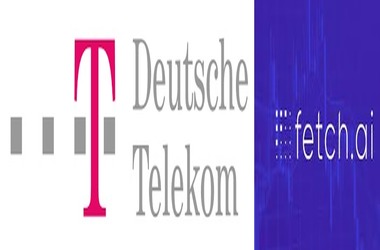
In this groundbreaking collaboration, Deutsche Telekom’s subsidiary, Telekom MMS, will play a crucial role as a validator for Fetch.ai’s decentralised blockchain. This validation process is designed to ensure the security of the network, particularly as autonomous AI agents, capable of coordinating resources and executing decentralized currency transactions, become integral to various industries.
The primary concept revolves around AI-controlled autonomous agents that have the capability to coordinate resources, assess data, and execute automated payments on behalf of users. These autonomous agents, with the ability to interact with various devices and services, hold immense potential for applications such as smart appliances reordering supplies when needed and electric vehicles negotiating prices at charging points.
Fetch.ai has already ventured into diverse sectors, including healthcare, automotive, supply chain management, and digital identity, showcasing the versatility of its AI-driven approach. The ultimate goal is to facilitate an “Economy of Things,” where independent devices and services are autonomously bought and sold by AI agents acting on behalf of their owners.
The collaboration with Deutsche Telekom is strategically aligned to address the critical issue of security, given that these AI agents will handle sensitive consumer data and financial details. Telekom MMS, through its role as a validator for Fetch.ai’s blockchain, contributes to ensuring the security and integrity of the vast amounts of data processed by AI agents to make autonomous decisions.
Dirk Röder, Head of the Web3 Infrastructure & Solutions Team at Telekom MMS, emphasized the groundbreaking nature of the collaboration, highlighting how autonomous agents can revolutionize industrial services, streamline processes, and enhance security and scalability through blockchain technology.
Humayun Sheikh, Managing Director of Fetch.ai, expressed that the partnership signifies a significant milestone for Fetch.ai, enabling the integration of real-world use cases that improve the existing network. The collaboration aims to advance research, development, and practical applications of agents, AI, and decentralized Web3 technologies.
Deutsche Telekom’s support for Web3 technologies, particularly blockchain, has been evident over the years. According to Röder, the company already backs eight blockchain networks with over 200 validators, managing assets totaling more than 60 million euros across various platforms like Chainlink, Ethereum, Celo, Q, Flow, Polkadot, Polygon, and Energy Web.
As the partnership unfolds, it is poised to contribute to the evolution of Web3 technologies and the realization of an interconnected, secure, and autonomous digital ecosystem.
This news is republished from another source. You can check the original article here










